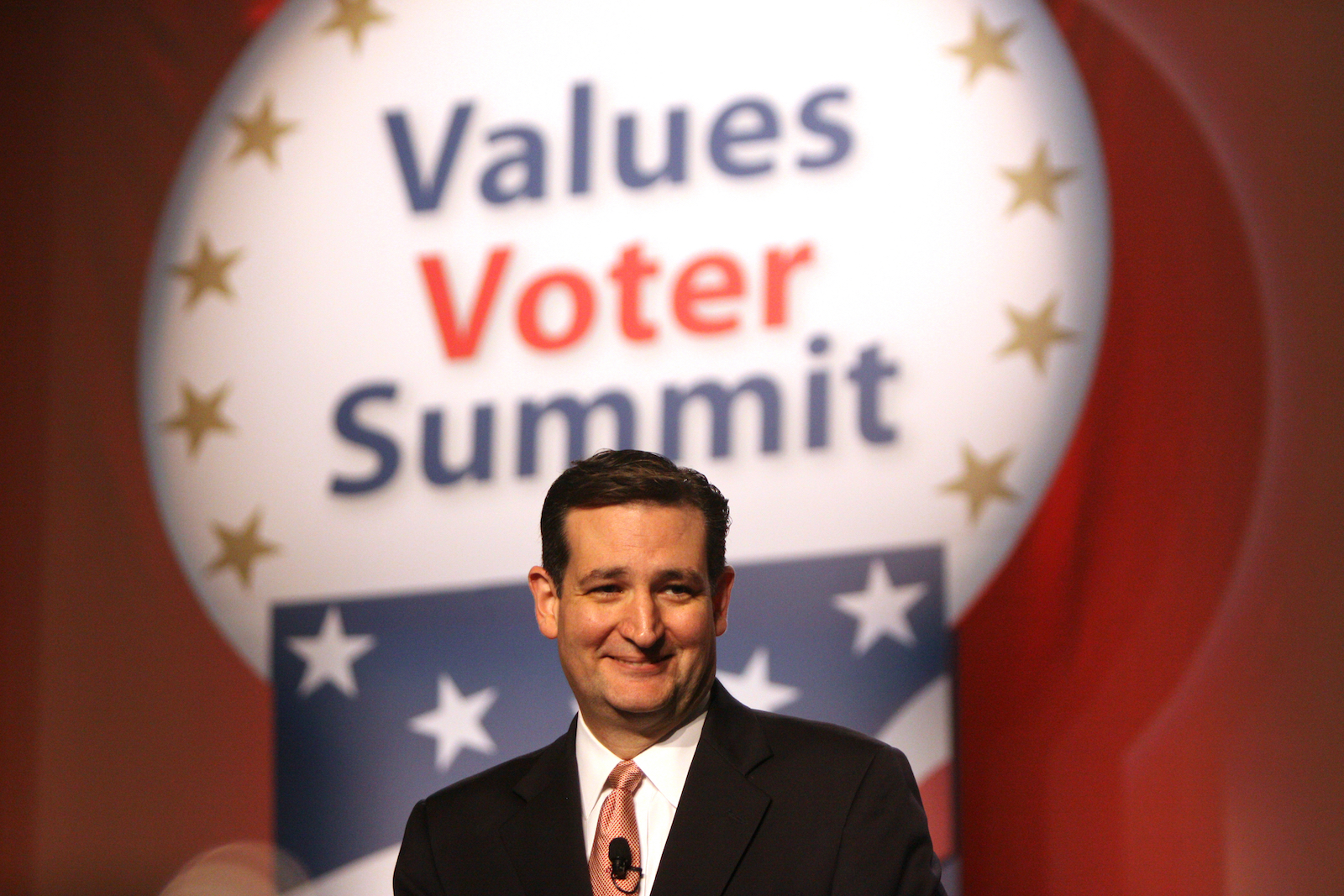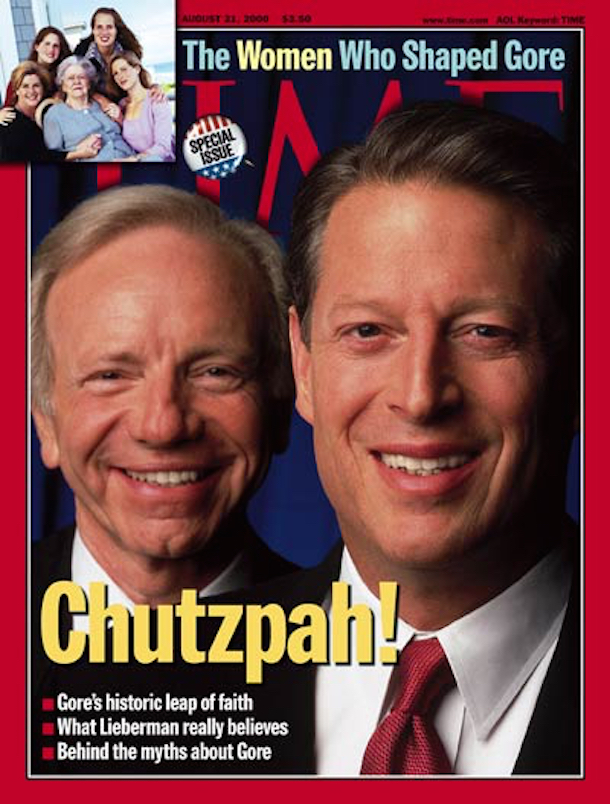
Politics
Ted Cruz’s Linguistic Chutzpah
“Chutzpah” is making headlines again. This time it’s not because someone mispronounced it (as former Congresswoman Michele Bachmann did a few years ago); it’s because Republican presidential candidate Ted Cruz called it a “New York term.”
At a recent New Hampshire event, Cruz responded to Donald Trump’s criticism that he borrowed money from Goldman Sachs.
Cruz pointed out that Trump, in fact, had taken out over $480 million in loans from Wall Street banks.
“For him to make this attack,” Cruz boomed, “to use a New York term” – Cruz then paused for laughter – “it’s the height of chutzpah.”
Highlighting Donald Trump’s “New York values” is a tack Cruz has repeatedly taken in recent weeks on the campaign trail.
But not all were amused. Washington Post columnist Dana Milbank wrote, “‘chutzpah,’ of course, is not a ‘New York’ term. It’s a Yiddish – a Jewish – one. And using ‘New York’ as a euphemism for ‘Jewish’ has long been an anti-Semitic dog whistle.”
As a sociolinguist who specializes in American Jewish language, I’ve studied the use of the word “chutzpah” in the United States. Was Ted Cruz correct in calling “chutzpah” a New York word? And were there anti-Semitic undertones to the association?
Two primary uses
“Chutzpah” is just one of many words introduced into American English by Yiddish-speaking immigrants from Central and Eastern Europe, along with “shmooze,” “maven” (also both from Hebrew), “shpiel” and “klutz.”
In his 1968 book The Joys of Yiddish, Leo Rosten offered a definition of “chutzpah” (or as he spells it, “chutzpa”) that has been widely cited: “Gall, brazen nerve, effrontery, incredible ‘guts’; presumption-plus-arrogance such as no other word, and no other language, can do justice to. The classic definition of chutzpa is, of course, this: Chutzpa is that quality enshrined in a man who, having killed his mother and father, throws himself on the mercy of the court because he is an orphan.”
“Gall” is primarily negative – like Cruz’s use of the word. But “chutzpah” has also come to have positive associations, as in Oprah Winfrey’s Chutzpah Awards, presented annually to “women whose chutzpah – audacity, nerve, boldness, conviction – has taken them to the most amazing places.”
According to a Google Books search, “chutzpah” first appeared in English writing in 1877, and it gained popularity in the 1960s. There were additional bumps in usage after the 1991 publication of Alan Dershowitz’s memoir, Chutzpah, and in 2000, when Al Gore selected Joe Lieberman, a religious Jew, as his running mate. In his first speech as Gore’s running mate, Lieberman said, “You know, there are some people who might actually call Al Gore’s selection of me an act of chutzpah.”

Time magazine then featured the word on its cover under a photo of Gore and Lieberman. At that time, the word was clearly associated with Jews, and it was one of many Hebrew and Yiddish words used in the press (by supporters and detractors) to highlight Lieberman’s Jewishness.
Sixteen years later, the word is used regularly in political discourse – and not necessarily in reference to Jews. In December, President Obama used the term in a fundraising email when describing Republicans in Congress. Of course, many still associate the word with Jews because of its origins and its “ch” sound.
A part of Newyorkese?
In 2008, I tested “chutzpah” and other Yiddish words in a survey I conducted with sociologist Steven M. Cohen. We received over 30,000 responses, with about 25,000 coming from Jews and 5,000 from non-Jews. We asked respondents whether they know and use these words; many reported that they do.
The survey can help us answer the question of whether Cruz correctly characterized “chutzpah” as a “New York term.” We also asked about two different meanings of “chutzpah”: negative, like Cruz’s use, and positive, like Oprah’s.
We found that Jews are more likely than non-Jews to report using the word with both meanings, but regardless of Jewish identity, those who’ve lived in New York are more likely to report using both than those who’ve never lived in New York. In addition, among survey respondents, 63 percent of non-Jews who have lived in New York report using “chutzpah” negatively, compared to 47 percent who have never lived in New York.
So Cruz is right – the word is used more by New Yorkers. But, as Milbank points out, it’s also used more by Jews (87 percent). Interestingly, non-Jewish respondents are more likely to use the positive meaning than the negative one. The opposite holds for Jews.
How Cruz uses “chutzpah” to set up contrasts
The conflation of Jewish and New York language has a long history. A researcher in 1932 reported that New York Jews had several “errors” in their pronunciation of English words. A 1980 study found that people associated Yiddish-influenced grammar with both Jews and New Yorkers (including sentences like “Some milk you want?”).
Of course, it’s only natural for a large ethnic concentration to influence their local dialect. About a quarter of the Jews in the United States live in the New York area – over 1.5 million people, which represents about 12 percent of the New York population. A century ago, this percentage was even higher: Jews were almost a third of the New York population.
Jews are also overwhelmingly liberal; in every presidential election since 1984, a majority of Jews have voted Democratic, sometimes as high as 80 percent.
So when Cruz uses “chutzpah” in this way – and when he rails against “New York values” – he’s associating Donald Trump not just with New York, but with Jews and liberals (ironic, given the vast chasm between Trump and liberals). And this allows him to set up a contrast with his conservative, Christian, suburban and rural base.
If Cruz had just accused Trump of chutzpah, there would be no issue. By marking the word as “New York” and exaggerating the guttural “ch,” he distanced himself from the word and the foreignness and cosmopolitanism it represents.
So, yes, there is some veiled – and therefore deniable – anti-Semitism there. (But, I would argue, it’s minor compared to Trump calling a Jewish audience “negotiators” and saying they want to control politicians with their donations.)
At the same time, I share Jewish journalist Ron Kampeas’ instinct to kvell a little about the graduation of the word “chutzpah” into the mainstream.
Whether they align politically with Cruz, embrace “New York values” or find themselves somewhere in the middle, Jews should be tickled that a word once considered Jewish is now used by a Southern Baptist to attack a Presbyterian.
This article was originally published on The Conversation. Read the original article.

